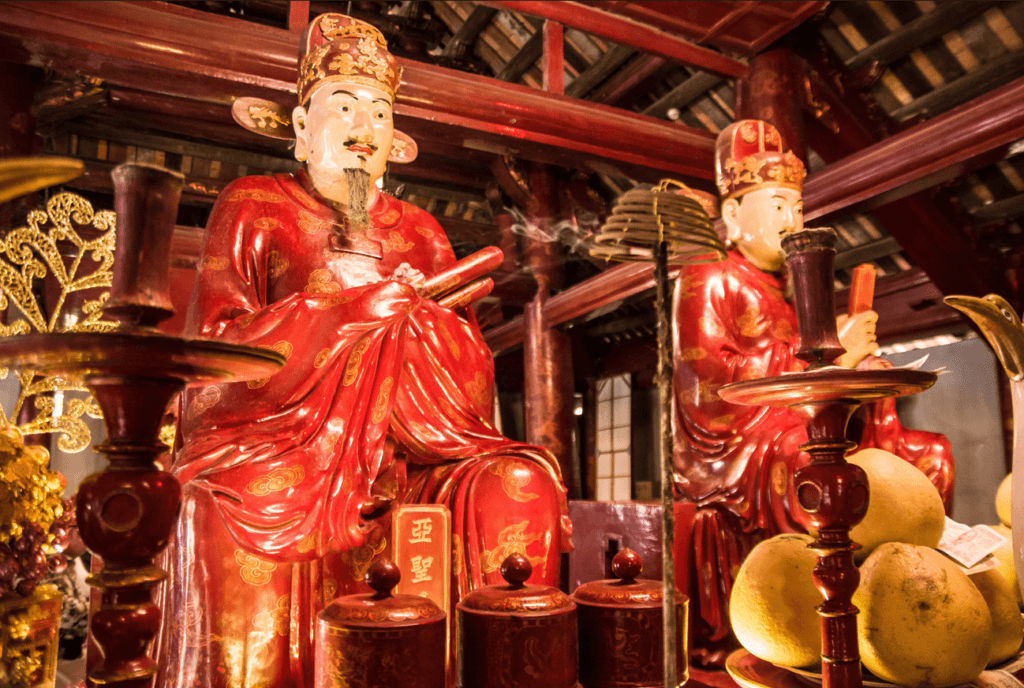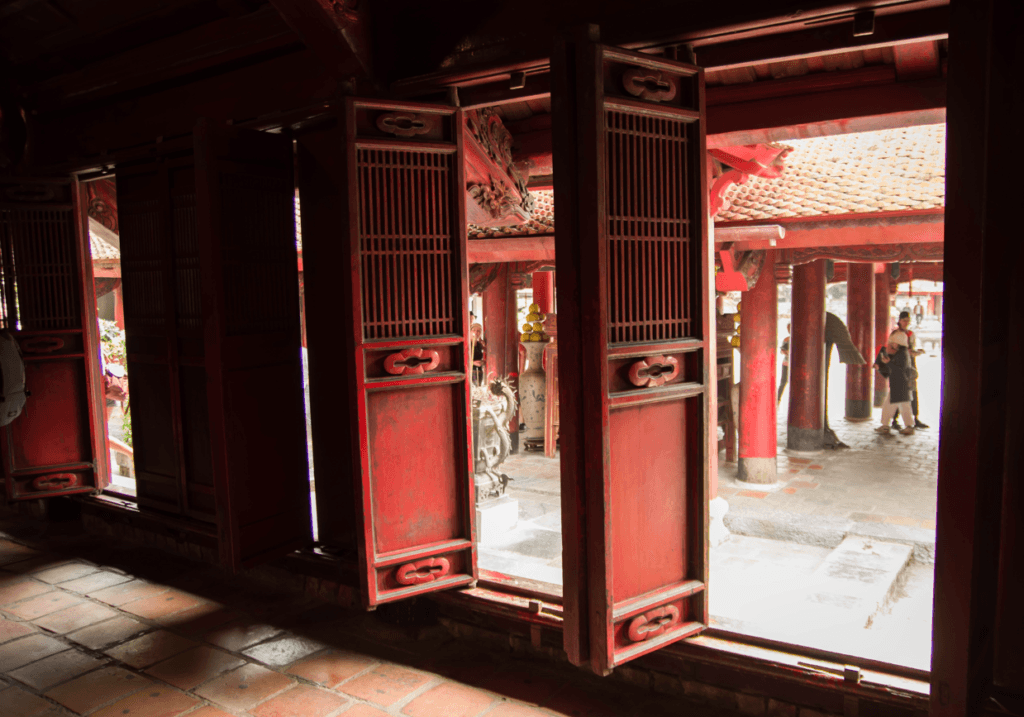When we travel through East Asia – from ancient temples in China to serene courtyards in Hanoi – we often step into the lingering presence of a man who lived more than 2,500 years ago: Confucius. His teachings helped shape the cultural and moral foundations of an entire region, and even today, travelers unknowingly walk paths laid down by his philosophy.
Confucius, born in 551 BCE in the state of Lu (present-day Qufu, China), was a scholar, philosopher, and teacher. Known in Chinese as Kong Fuzi (Master Kong), he came from a modest background and devoted his life to education, ethics, and the improvement of society. He served briefly as a political advisor but found his true calling in teaching and traveling, sharing his ideas with a group of loyal disciples.
It’s important to clarify: Confucius was not a god, nor did he claim divine status. He was fully human — a thinker whose ideas, rooted in respect, loyalty, and virtue, deeply resonated with generations to come.
Confucianism is best understood as a philosophical and ethical system, not a religion in the traditional sense. It has no god, no clergy, and no rituals of worship. However, it includes spiritual elements such as ancestor veneration, ceremonial respect, and moral discipline, which have often placed it in the realm of religious traditions, especially in Chinese culture.
The core teachings of Confucius were recorded by his students in The Analects, a collection of dialogues and reflections that form the foundation of Confucian thought. In this book, Confucius emphasizes:
- Ren (仁) – Compassion and humaneness toward others.
- Li (礼) – Proper conduct, rituals, and respect in social interactions.
- Xiao (孝) – Filial piety, or deep respect for one’s parents and ancestors.
- Yi (义) – Righteousness and doing what is morally right.
- Zhi (智) – Wisdom and discernment.
- Zhong (忠) – Loyalty.
- Shu (恕) – Reciprocity – treating others as you wish to be treated.
These values aren’t abstract ideals – they are intended as practical guides for daily life, offering a roadmap for building personal character and social harmony.
Confucianism remains a powerful cultural force across East Asia, particularly in China, Korea, Japan, and Vietnam. While fewer people today would call themselves Confucian in a religious sense, the philosophy still influences social norms, education systems, and family structures. It is estimated that over six million people worldwide identify with Confucianism in some formal way, though its cultural influence extends far beyond these numbers.

In China, Confucian classics are being reintroduced into school curricula. In South Korea, Confucian values continue to shape hierarchies in family and corporate life. In Japan, it has long influenced education and respect for elders.
Vietnam, with its rich blend of indigenous culture and Chinese influence, has long embraced Confucian ideals. Nowhere is this more evident than in Hanoi’s Temple of Literature (Văn Miếu), a serene, beautifully preserved complex built in 1070 and dedicated to Confucius. It later became Vietnam’s first national university, the Imperial Academy (Quốc Tử Giám), where scholars studied Confucian texts in preparation for civil service exams.

Although modern university curricula in Vietnam no longer center around Confucian classics, the legacy of Confucian education is honored at the Temple of Literature. Many students still visit before important exams to pray for wisdom and success. The site remains a popular cultural symbol, reminding visitors of Vietnam’s scholarly traditions and the enduring influence of Confucian values like respect for teachers, learning, and social responsibility.
For the mindful traveler, understanding Confucianism can lead to deeper cultural insight. When you notice multi-generational families dining together, or when your Vietnamese host insists you sit before they eat – you’re witnessing Confucian values in action. These subtle expressions of respect and harmony are woven into the social fabric, guiding interpersonal relations even in the most modern settings.
Travel, in many ways, is an act of learning. And as Confucius once said: “Is it not a pleasure to learn and, when it is timely, to practice what you have learned?”
